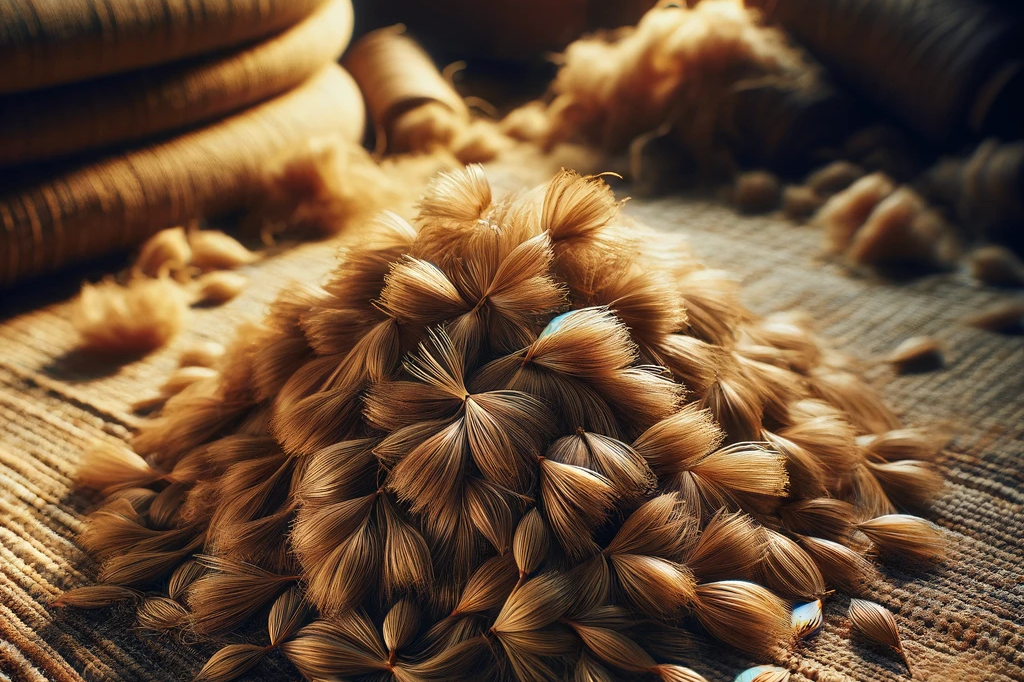Coconut fiber

What is coconut fiber?
Coconut fiber, also known as coir, is a natural product obtained from the outer husk of the coconut. It is known for its robustness and is often used in industry to make ropes, mats and other products. However, in nutrition, especially in animal feed, it is valued for its high fiber content.
Benefits of coconut fiber for dogs
Improvement of digestion
Coconut fiber is rich in soluble and insoluble fiber, which can promote healthy digestion. The fibers can help regulate stool, prevent constipation and support healthy intestinal flora.
Weight management
Thanks to its high fiber content, adding coconut fiber to a dog's diet can promote a feeling of satiety, helping with weight management. This is particularly useful for dogs that are prone to obesity.
Reduction of hairballs
For dogs prone to hairballs, coconut fiber can help move them through the digestive system, reducing the discomfort and risks associated with hairballs.
Risks and disadvantages
Potential risk of overfeeding
As with any fiber source, there is a risk that overfeeding coconut fiber can lead to digestive problems, including bloating, diarrhea or constipation. It is important to carefully manage the amount of coconut fiber in your dog's diet.
Possible intolerances
Some dogs may be sensitive to coconut products. Monitor your dog closely for signs of allergies or intolerances when introducing coconut fiber into their diet.
Nutrient interaction
The high fiber content in coconut fiber can interfere with the absorption of certain nutrients. It is important to ensure a balanced diet so that the dog receives all the necessary vitamins and minerals.
Recommendations for introducing coconut fiber into a dog's diet
- Slow introduction: Start with small amounts of coconut fiber in your dog's diet and increase gradually so as not to overwhelm the digestive system.
- Observation: Pay attention to your dog's well-being and adjust the amount of coconut fiber accordingly to avoid digestive discomfort.
- Balanced diet: Make sure your dog receives a balanced diet in addition to coconut fiber to ensure optimal nutrient absorption.
A useful supplement with measure and purpose
Coconut fiber can be a valuable addition to your dog's diet by aiding digestion and contributing to weight management. However, as with any dietary change, care must be taken to avoid digestive problems or nutritional deficiencies. Careful introduction and observation are crucial to ensure your dog can enjoy the benefits of coconut fiber without the drawbacks. Ultimately, a balanced diet is the key to promoting your dog's health and well-being.
If you notice any signs of hypersensitivity or poisoning in your dog, you should see your vet immediately. We are not a substitute for a vet, but we try to be as accurate as possible. Every dog reacts differently and we recommend you get a second opinion or consult your vet if in doubt.
Stay healthy and take good care of your four-legged friend!😊
Similar to Coconut fiber
Hemp fiber is obtained from the stalks of the hemp plant (Cannabis sativa), a plant best known for its use in the textile industry and for its bio-based materials. Unlike the psychoactive compounds...
Jute fiber is obtained from the stems of the jute plant(Corchorus spp.), which grows mainly in warm, humid regions of South Asia such as Bangladesh and India. This natural fiber is the second most...
Bamboo fiber is a natural fiber obtained from the stem or leaves of the bamboo plant. It is spun into a fine yarn that can then be processed into various textiles. Bamboo fiber has many positive...
Flax fiber is obtained from the flax plant (Linum usitatissimum), which has been known for thousands of years for its versatile applications. While flax oil is extracted from the seeds of the plant...



